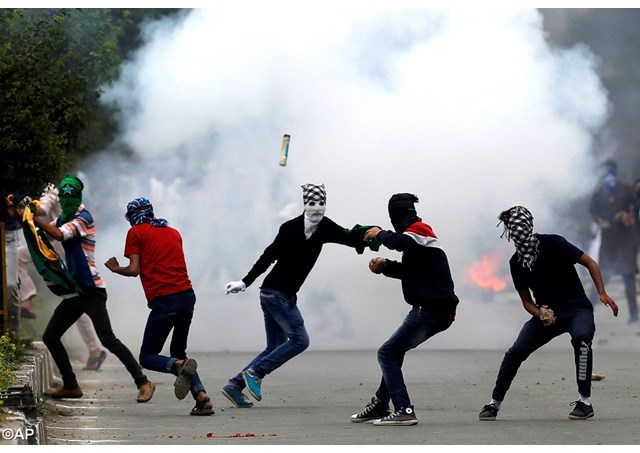
Indian diocese’s peace programme for Kashmir school students

The Catholic diocese in India’s troubled Jammu and Kashmir state has launched a programme to educate young people on the need for peace on the Indian side of the India-Pakistan border where hostilities between the two countries have killed hundreds of people.
India-Pakistan rivalry since partition
Jammu-Srinagar Diocese covers the entire state, of which the Muslim-majority Kashmir Valley has been claimed by both India and Pakistan since their partition by the British in 1947, and over which the two nuclear-armed rivals have fought at least three major wars. The border between the two countries in Kashmir is one of the world’s heavily militarized, with frequent cross-fire shelling between them.
The peace project of Jammu-Srinagar Diocese is "an effort to foster friendship and oneness by accepting that we belong to one human family," explained Father Saiju Chacko, director of Catholic Social Service Society, the social service wing of Jammu-Srinagar Diocese. The project funded by Caritas India called "Maitri Abhiyan" (peace movement), focuses on school children. "So far, we have 12 schools from Jammu and in border areas…,” project coordinator, M. Tongpang Longchar told UCANEWS. "We also provide a platform for children to explore diversity and encourage relations within and across the region," he said.
Kashmir seccionist movement
Besides cross-border tensions, India’s Kashmir Valley has been embroiled in a violent secessionist movement. In the last 30 years, an estimated 100,000 people have died in Jammu and Kashmir, including civilians, militants and army personnel, after groups began an armed struggle for freedom from Indian rule or to merge with neighboring Pakistan. Separatist violence and street protests have surged in Kashmir since July last year after security forces killed a popular separatist commander. Separatists accuse Indian forces of rights abuses.
Mutual love
Deepak Kumar, an eighth grader from Kristu Jyoti School in Samba, said programmes associated with the projects are fun to attend because besides lectures they also include exhibitions and essay competitions and painting. "We only will achieve success when we love each other irrespective of religion, caste and creed. This is what I have learnt from these programmes," he said.
According to Father Premful Tigga, assistant director of the social service wing, 30-35 children from various schools are grouped under teachers to help them discuss and share their knowledge and experience of peace. Currently they are focusing on high school students to form such "peace clubs," Father Tigga told UCANEWS.
Longchar said a major challenge is to make school principals understand the need for such a project because they are already pressed for time to finish their routine syllabus. "Disturbances along the Indo-Pak border often results in school shutdowns, which are slowing the project flow. But I hope we will be able to overcome some of these challenges," he added. (Source: UCANEWS)
| All the contents on this site are copyrighted ©. |


